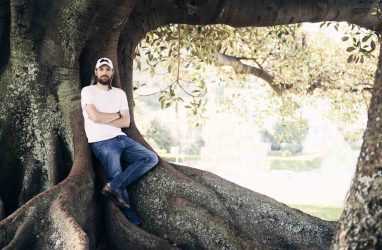Feed aggregator
New coal construction lowest in decade -think tank
Shanghai to auction off 3 mln CO2 permits under local ETS
New Zealand’s first utility-scale solar farm begins generating power
 New Zealand's first utility scale solar farm swings into production, while environmentalists succeed in blocking an even bigger project on the south island on the grounds of biodiversity.
New Zealand's first utility scale solar farm swings into production, while environmentalists succeed in blocking an even bigger project on the south island on the grounds of biodiversity.
The post New Zealand’s first utility-scale solar farm begins generating power appeared first on RenewEconomy.
INTERVIEW: Biochar developer raises capital to fund scale-up of commercial facilities
INTERVIEW: Biochar developer raises capital to fund scale-up of commercial facilities
Levels of toxic PCB chemicals found at 30 times ‘safe’ limits in stranded whales
Studies of cetaceans stranded in UK waters show high levels of toxins 20 years since global ban of most PCBs, say scientists
Nearly half of the whales and dolphins found in UK waters over the past five years contained harmful concentrations of toxic chemicals banned decades ago, an investigation has found.
Among orcas stranded in the UK, levels of PCBs, a group of highly dangerous and persistent chemicals that do not degrade easily, were 30 times the concentration at which the animals would begin to suffer health impacts, researchers said.
Continue reading...‘Forever chemicals’ found in drinking water sources across England
Exclusive: Experts ‘alarmed’ after potentially toxic chemicals detected in sources at 17 of England’s 18 water firms
Potentially toxic “forever chemicals” have been detected in the drinking water sources at 17 of 18 England’s water companies, with 11,853 samples testing positive, something experts say they are “extremely alarmed” by.
Per- and polyfluoroalkyl substances (PFAS) – a group of 10,000 or so human-made chemicals widely used in industrial processes, firefighting foams and consumer products – were found in samples of raw and treated water tested by water companies last year, according to the Drinking Water Inspectorate (DWI), the Guardian and Watershed Investigations has found.
Continue reading...3 reasons why removing grazing animals from Australia's arid lands for carbon credits is a bad idea
Japanese lab study confirms DAC process in concrete
SwitchedOn Podcast: How a health check for your home can help upgrade its energy efficiency
 Home energy efficiency assessor, Lucinda Flynn, explains why your reverse cycle air conditioner feels blowy, how to increase the energy rating on your home, and tips for retrofitting on a budget.
Home energy efficiency assessor, Lucinda Flynn, explains why your reverse cycle air conditioner feels blowy, how to increase the energy rating on your home, and tips for retrofitting on a budget.
The post SwitchedOn Podcast: How a health check for your home can help upgrade its energy efficiency appeared first on RenewEconomy.
Broken Hill battery makes first appearance in “most challenging” part of grid
 Broken Hill battery, testing grid forming inverters at the edge of Australia's sprawling grid, is about to begin its commissioning process.
Broken Hill battery, testing grid forming inverters at the edge of Australia's sprawling grid, is about to begin its commissioning process.
The post Broken Hill battery makes first appearance in “most challenging” part of grid appeared first on RenewEconomy.
Major Japanese bank to invest in Singapore-based carbon exchange
Synergy awards construction contract for biggest battery on WA grid
 Synergy announces contractor to install and connect the 288 battery modules that will make up what will be - at least for a time - the biggest battery on the main W.A. grid.
Synergy announces contractor to install and connect the 288 battery modules that will make up what will be - at least for a time - the biggest battery on the main W.A. grid.
The post Synergy awards construction contract for biggest battery on WA grid appeared first on RenewEconomy.
Grok changes cap as it seeks “lighthouse” investments on climate and clean energy
 Mike Cannon-Brookes' Grok Ventures changes cap with a new logo (of a cap), and new focus on climate technologies and "lighthouse" investments that can make a difference.
Mike Cannon-Brookes' Grok Ventures changes cap with a new logo (of a cap), and new focus on climate technologies and "lighthouse" investments that can make a difference.
The post Grok changes cap as it seeks “lighthouse” investments on climate and clean energy appeared first on RenewEconomy.
Toxic gas putting millions at risk in Middle East, BBC finds
Regions lead plan for huge new transmission link and 4.2 GW of solar and storage
 "Community led:" Seven regional councils team with CopperString founder to add new north Queensland transmission link, gigawatts of solar and battery storage.
"Community led:" Seven regional councils team with CopperString founder to add new north Queensland transmission link, gigawatts of solar and battery storage.
The post Regions lead plan for huge new transmission link and 4.2 GW of solar and storage appeared first on RenewEconomy.
CP Daily: Monday November 27, 2023
Australia in the dark on its own fossil fuel emissions, says Superpower Institute
 SuperPower Institute says Australia has little idea of the extent of its fossil fuel emissions and wants to create a state-of-the-art data network.
SuperPower Institute says Australia has little idea of the extent of its fossil fuel emissions and wants to create a state-of-the-art data network.
The post Australia in the dark on its own fossil fuel emissions, says Superpower Institute appeared first on RenewEconomy.



